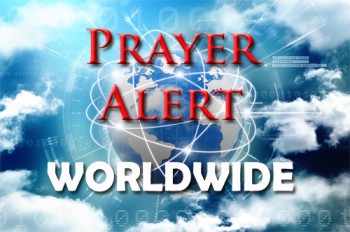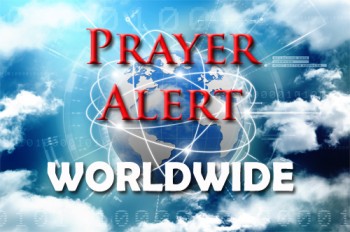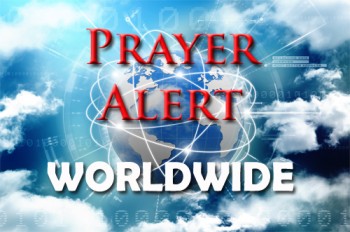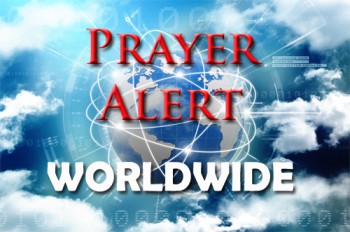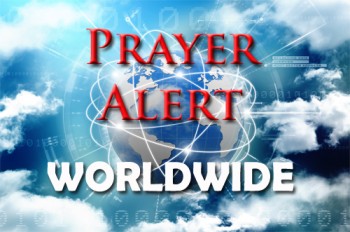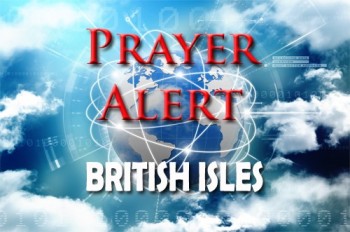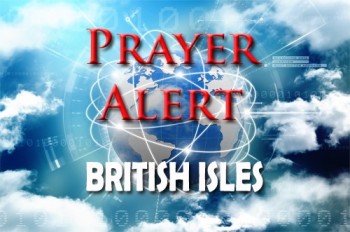Canada: day of prayer for the harvest
Canadian intercessors have invited the nations to join them in an online seven-hour prayer meeting to pray for the mobilising of the Church into the Great Commission as we emerge from the coronavirus restrictions. Numerous Canadian ministries and churches are linking arms to sponsor this full-day initiative. Prayer will be led by a wide variety of teams of senior leaders from across Canada, but every voice joining in and participating adds powerfully to the whole. This day of prayer will be on 21 May, Ascension Day, remembering when Jesus gave His disciples the Great Commission, the mandate that has burned in the heart of the Church ever since.
Palestine: women and coronavirus
A woman leads the fight against coronavirus in the Palestinian territories, while at the same time it has brought more violence and suffering to women. Umm Iyad travels to the northern West Bank to follow up on emergency procedures as part of the efforts to stem the outbreak of coronavirus. She has been heading the village council since 2017, and is now head of the emergency committee. She is also working on a community initiative to cultivate land and grow vegetables to achieve self-sufficiency for the villagers. However, during lockdown, statistics showed social workers across the Palestinian governorates have been dealing with increased victims of domestic violence. 40% of women have been subjected to emotional and mental abuse, and 31% to physical abuse. 60% of the victims have fled their houses, and 21% attempted suicide.
Unsafe in lockdown - child sex trafficking
Any child sold for sex is a victim of sex trafficking. Since 2006, IJM South Asia has rescued 1000+ survivors from sex trafficking, seen over 500 criminals restrained and trained over 30,000 police, government officials, and NGOs. Sex trafficking survivors have described being beaten and forcibly injected with narcotics. This is continuing during lockdown. There is particular concern about the rise of online sexual exploitation of children during the pandemic. It is highly possible that seasoned human trafficking criminals will exploit the current situation. Please pray against this increased exploitation. Pray also for safety and security for the survivors of sex trafficking now thriving and living independently; many are now unable to work in lockdown and risk falling back into desperate poverty. Pray that IJM can maintain contact with these survivors in their network, and provide what is needed to keep them safe.
Maldives: pray for change
The Maldives is Asia's smallest country by area and population, known for its lucrative tourism industry. Despite tourism, it is an extremely closed country which boasts of being 100 percent Islam and heavily represses Christian influence. Only a handful of secret believers live in the country, which is regarded as ‘fertile ground for recruitment’ to radical Islam. Dozens of Maldivians have joined IS. The 2019 elections had a surprising result when opposition leader Ibrahim Mohamed Solih defeated the former president Abdulla Yameen, who now faces corruption charges. The new government has begun reforms. Give praise for the shake-up in the government. Pray that this may shake up the nation’s repressive laws and human rights abuses. Conversion to Christianity results in a loss of citizenship. Churches and Christian gatherings do not officially exist, and believers live in fear of being discovered. Pray for safety and religious freedom in the Maldives.
China: Wuhan reports new cases
On 11 May Wuhan reported six new coronavirus cases since lockdown was ended, raising concerns about a second wave. The people live in the same residential complex and were previously classified as asymptomatic - people testing positive for the virus and capable of infecting others while not displaying symptoms. Wuhan quickly drew up plans to test its entire population of 11 million people. All districts were told to submit details as to how testing could be done within 10 days. On 13 May China’s media reported that any major increase in numbers as a result of the new testing will raise serious questions over the accuracy and transparency of previous figures. Officials are being accused of covering up the severity of the virus in the earliest stages, and confusion over China's national figures has been created by several shifts in diagnostic and reporting procedures.
Hope for the countryside - seasons
Spring has burst forth in all of its beauty and splendour. Blossom still covers many hedges, and flowers have increased in size and structural complexity. Leaves have unfurled in their fresh, green shades as trees begin their yearly quest, hungry for the sun's rays. All this seems to be in total contrast to the lockdown restrictions that have been imposed on us all, and reflects the fact that God's Spirit is moving throughout the land equally unfettered. Give thanks that God loves to work for the good of those who love Him, who have been called according to His purpose. See the Lord enthroned in splendour, see Him high and lifted up, yet His touch is light and tender, His love an overflowing cup.
Intercessor Focus: lockdown praise and thanks
Psalm 136 says, ‘Give thanks to the Lord, for He is good. His love endures for ever.’ During lockdown thousands are encountering God through prayer and praise with online networking. ‘Germany together in prayer’ brought a million Christian churches, ministries and groups plus prominent political leaders together to pray online.In the same week ‘World Prayer Together’ united millions of worshippers across the nations. Meanwhile, Holy Trinity Brompton reports a record number of Alpha sign-ups and there is an increased openness to the gospel as more people seek spiritual truths on search engines. Praise God for declining rates of infection and the solidarity of communities practising limited communal contact. And for many the ‘imposed’ furlough is resulting in families having more time together and the rest resulting from cancelled non-essential travel.
‘Light touch’ evangelism
The Freedom Church in Kingswood (Bristol) has set up Freedom Groups which meet weekly via Zoom. Church members in the groups are encouraged to invite neighbours to join. The church has also created a prayer line, Prayer4You, where people can contact the church for spiritual support. ‘We wanted to offer a bit more than a leaflet through the door offering help,’ explains associate pastor Revd Dr David Hull. ‘We wanted to offer the opportunity to engage in a light touch way with questions of faith.’ As well as places to talk, pastors record a short weekly video message for groups to watch. Each broadcast introduces a faith issue which the group can then discuss. ‘It is an opportunity for people outside the church to begin to think about and discuss questions of faith in any way they want to.’
The new normal?
On 10 May Boris Johnson will announce plans to ease lockdown restrictions. High Street retailers want to hear how they might reopen. There will be bargains as managers try to shift stock. People are wondering if they will be able to meet friends and family. Will small groups of friends or relatives meet in a small group or in ‘bubbles’? Recently a grandmother asked a Downing Street briefing if being able to hug her grandchildren would be among the first changes. Health Secretary Matt Hancock said that her question ‘brought home the emotional impact’ of lockdown, and he hoped she could do it ‘as soon as possible’. Pray for God to direct every decision made by our leaders as they plan the various stages of our nation’s future. Pray for company bosses rethinking how premises and equipment are shared as they organise safe walking routes in offices, on factory floors and building sites.
Hope for the countryside - farming
Coronavirus has prompted a new appreciation of food and farming, a new interest in healthier eating, local food and national food security, and a greater awareness of injustices in the food chain. Pray that all these will be sustained beyond Covid-19 and will help improve relationships between producers and consumers, strengthen rural economies and create a more just and fairer food system. As families gather for more meals at home, pray for a strengthening of family life and a renewed awareness of the Lord who 'put us in families' (Psalm 68:6). The countryside has never been more popular. People have been flocking to farmland for exercise and recreation, and to enjoy all the sights and sounds of spring. Pray for a reconnecting between town and country and for farmers to deal graciously with the increased footfall.

